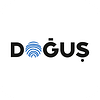Bu üç günlük "Data Handling in Python" eğitimi, Verilerle çalışmak ve bunları işlemek için Python'u nasıl kullanacaklarını öğrenmek isteyenlere yöneliktir. Veri Bilimine Giriş eğitimi ile birleştirildiğinde, Veri Mühendisliği, Gelişmiş Veri Analitiği, Veri Bilimi, Makine Öğrenimi ve Yapay Zeka alanlarında Python öğrenme yolculuğunu takip etmek için iyi bir hazırlık yapmış olursunuz.
Program sırasında Python'la ve NumPy, Pandas, Matplotlib ve Seaborn'a odaklanarak Data ile çalışmaya yönelik belirli geliştirme ortamları ve paketleriyle tanışacaksınız.
Yol boyunca tablo halindeki verileri nasıl temizleyeceğinizi ve değiştireceğinizi, basit istatistiksel teknikleri ve veri görselleştirmelerini nasıl uygulayacağınızı ve süreçleri otomatikleştirmek için programınızın akışını nasıl kontrol edeceğinizi öğreneceksiniz.
"Data Handling in Python" eğitimi boyunca Veri Bilimi teknik uzmanlarımızdan biriyle etkinliklere ve tartışmalara katılacak ve öğrendiğiniz teknikleri uygulamak ve daha ileri uygulamalara yönelik fikirler geliştirmek için teknik laboratuvar etkinliklerini tamamlayacaksınız.
























